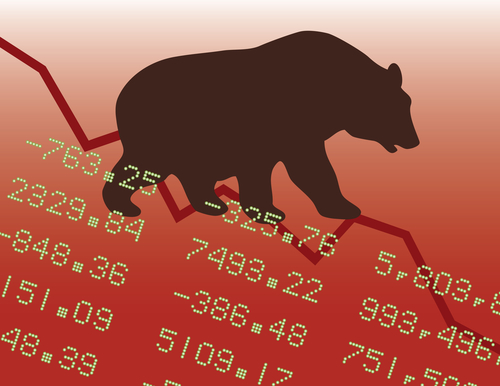Volatile Markets: The Key Things to Always Remember

Volatility has been severe in 2018.
After watching the Dow Jones Industrials explode from 24,809 to a high of 26,616, the bottom appeared to fall out starting February 2, 2018, as the Dow fell 665 points.
The Dow would fall another 1,175 points on February 5, and another 1,032 points on February 8, 2018. On March 1, 2018, the Dow would fall another 420 points.
Then, on March 19, 2018, the Dow would fall another 400 points, wiping out nearly all of the gains picked up for 2018 to date.

Of course, many of us knew very well there would be a correction at some point.
But clearly, things have gotten out of control.
One of the many reasons for that is computerized trading, which uses complex algorithms to trigger automatic sells. And as we’re painfully aware, once the selling started, as markets tumbled, computerized stop losses made things a bit worse.
Intensifying that have been fears of a trade war, and a collapse in shares of Facebook.
For example, on fears of a trade war Boeing and United Technologies spiraled lower on fears that business could be interrupted.
Facebook then fell more than 7%, helping to force the Dow down 400 points on March 19.
Apparently, the stock fell after political analytics firm, Cambridge Analytica said it was able to collect data of 50 million people’s profiles without any consent.
"We think this episode is another indication of systemic problems at Facebook… We see enhanced risks for the company, but no near-term tangible impact on its business," Brian Wieser, an analyst at Pivotal Research, as quoted by CNBC. It was "made clear in the reporting is that Facebook did not make sufficient efforts to recover users' data, which then informed ad targeting in the 2016 US election. It also did not disclose the leak to users or investors."
Volatility has gotten so severe that even the CBOE Volatility Index (VIX) spiked to 20 from 16.

In short, there has been a good deal of reasons for elevated volatility.
But we have to remember, markets are resilient.
In fact, a correction of this size typically creates an opportunity for smart investors to pick up quality stocks at lower prices.
At the same time, such volatility is a reminder to protect you money.
In fact, remember the tips shared by Warren Buffett.
Trick No. 1 – Have Cash on Hand
Some people think it’s bad to have cash laying around, an “unproductive asset that acts as a drag on such markers as return on equity.”
But that’s not the case for Buffett.
“Cash, though, is to a business as oxygen is to an individual: never thought about when it is present, the only thing in mind when it is absent,” he says.
At the end of 2017, Berkshire Hathaway had $116 billion in cash. With that much money, he could buy any company within reach.
But he didn’t.
Even though his company’s role is to buyout companies and bring them under the tent, if you will, he didn't buy much. And that’s because they were all overpriced.
Think about that.
One of the richest people in the world with company sitting on $116 billion in cash did nothing, but sit on it. He was protecting his company’s money by not spending it. What he was doing was protecting his money from a potential decline.
It doesn’t matter how appealing an asset may appear, if it’s also overvalued, it’s better to protect yourself by hoarding cash.
Trick No. 2 – Don’t Follow the Herd
One of the key reasons that many investors underperform in the market is because they move in and out of assets at the wrong time. When an investor sees everyone else making money from rising markets, that's when they tend to throw every spare dollar into their investments.
In short, they get caught up in herd mentality.
Trick No. 3 – Be in a Strong Position to Capitalize
Buffett once said:
"Too-big-to-fail is not a fallback position at Berkshire. Instead, we will always arrange our affairs so that any requirements for cash we may conceivably have will be dwarfed by our own liquidity."
Buffett went on to point out that during the financial crisis, Berkshire was a buyer when others were panicking.
He sells when others are greedy; and buys when others are fearful.
With cash on hand, Buffett has the financial flexibility to jump on opportunities that popped up. As the billionaire often points out, keeping some cash on hand allows you to take advantage of corrections without having to sell other investments.
In short, buy low, sell high in a crisis situation.



